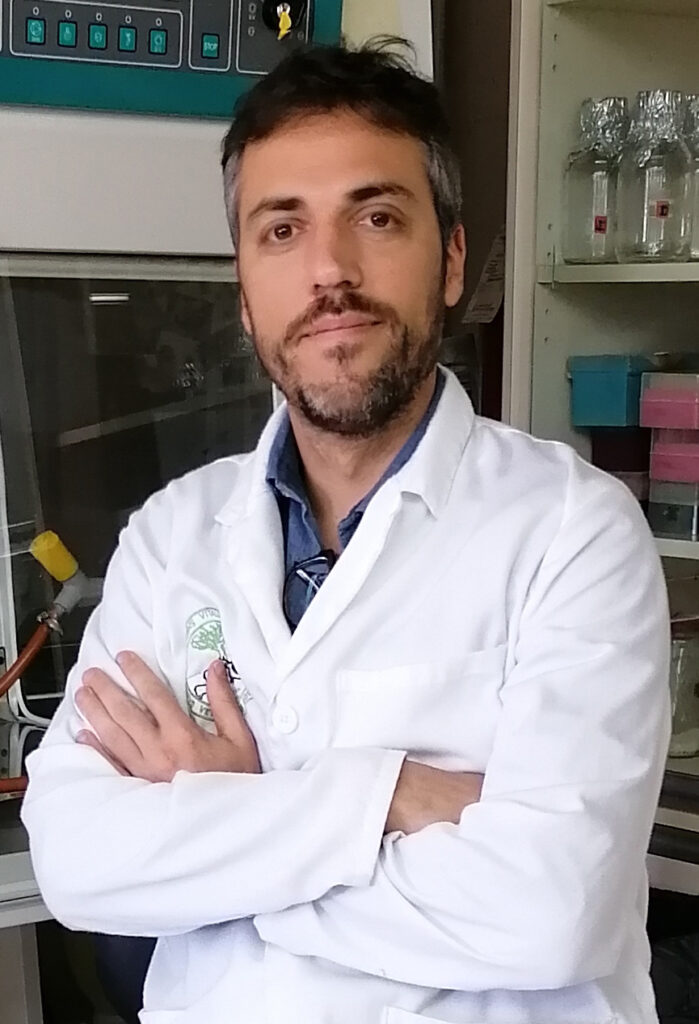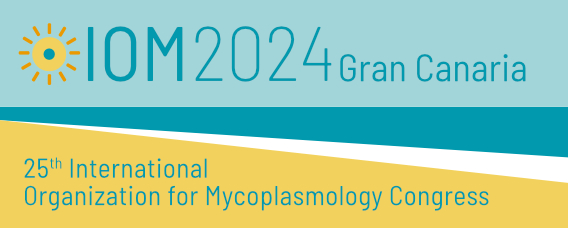Conference title:
“Disclosing pig-pathogen interactions through meta-omics tools”
Dr. Héctor Argüello-Rodríguez is a Doctor in Veterinary Medicine and holds a Ph.D. in Animal Health. After acting as Research Officer at the Food Safety Department at Teagasc (Dublin, Ireland) and at the Genetics Department of the University of Cordoba (Spain), he joined the University of Leon, Spain, as an Associate Professor. He is also a diplomate of the European College of Veterinary Microbiology.
His research interests are focusing on host-pathogen-microbiota interactions in intestinal infectious diseases in pigs, on strategies for controlling antimicrobial and on the study of microbiome-resistome interactions in pig industry.
Dr. Argüello is the co-author of a relevant number of articles (Anim. Microbiome, Gut Pathog, Vet. Res., Microbiome among others) and actively collaborates with EFSA, FAO and national research agencies.

Conference title:
“How a mollicute induces developmental changes in its host and attracts insect vectors”
Professor Saskia Hogenhout is a Group Leader in the Department of Crop Genetics at the John Innes Centre and Honorary Professor at the School of Biological Sciences, University of East Anglia, Norwich, UK. Her research primarily delves into the intricate dynamics between plants and insects, particularly emphasizing the influence of microbes within these relationships. A significant focus of her work is the study of phytoplasmas—pathogens transmitted by insect vectors—which induce severe morphological changes in plants, such as witches’ brooms and phyllody. Her team has made pioneering discoveries, revealing that these pathogens emit virulence proteins, or effectors, that specifically target and disrupt plant transcription factors crucial for developmental regulation. This interference promotes breakdown of these transcription factors, effectively short-circuiting plant pathways and circumventing the usual ubiquitination process, resulting in dramatic developmental defects. Furthermore, her research has highlighted that plants exhibiting symptoms of these diseases attract insect vectors more effectively, thereby facilitating the widespread dissemination of phytoplasmas. In addition, she has been instrumental in developing genomic tools and conducting functional analyses of effectors found in the saliva of various sap-feeding insects from the Hemiptera order, which are known carriers of plant pathogens. Her contributions span an array of fields including genomics, molecular genetics, entomology, plant pathology, virology, bacteriology, and recently, population biology and mechanistic modelling.
Professor Hogenhout has authored over 100 articles in prestigious international journals, including Cell, PNAS, Molecular Biology and Evolution, PLoS Pathogens, among others.

Conference title:
“Understanding the interplay between host and pathogen diversities: opportunities for prevention of emerging infections?”
Dr Benjamin Roche holds a PhD in Ecology and Evolutionary Biology. He is currently a Research Director at the French National Institute for sustainable Development (IRD), where he is the “One Health” scientific advisor of the CEO, as well as an associate professor at the National Autonomous University of Mexico (UNAM). He is one of the co-founders and co-coordinator of PREZODE, an international initiative aiming at preventing zoonotic diseases emergence.
His research focuses on a cross-disciplinary approach between evolutionary ecology and public health. Most specifically, he is interested in how host and pathogen diversity can affect the transmission of infectious diseases. He has also studied the interactions between ecological and societal processes in pathogens propagation. Although rooted in fundamental research, his projects offer operational opportunities to improve public health strategies.
Benjamin Roche has published more than 100 articles in international journals (The Lancet, Ecology Letters, PLoS Biology, PNAS, PLoS Pathogens, Trends in Parasitology, eLife, Philosophical Transactions of the Royal Society among others).

